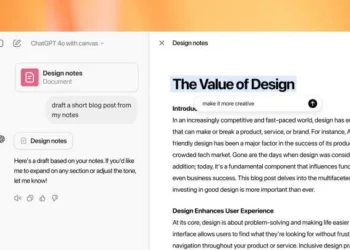
OpenAI, the developer behind ChatGPT, appears to be making strides toward establishing a third-party search platform that would seamlessly integrate the chatbot into various websites. If this initiative comes to life, it could position OpenAI as a direct competitor to Google’s search services and its browser.
As reported by The Information, the upcoming search tool, named NLWeb for Natural Language Web, is currently in a prototype stage. OpenAI has presented this prototype to a number of potential partners in sectors such as travel, retail, real estate, and food, mentioning brands like Conde Nast, Redfin, Eventbrite, and Priceline. This tool aims to bring ChatGPT’s search functionalities directly to the websites of these companies’ offerings.
NLWeb could compete with several applications of Google’s own rapidly evolving Gemini AI tools. Following OpenAI’s initiation of the AI competition in November 2022, Google was among numerous companies to develop its chatbot solutions. Gemini has evolved into a versatile AI assistant and writing aide, also integrated into Google’s search engine to assist users with various tasks—including shopping and travel assistance.
Data reveals that Google’s Chrome browser dominates the market, holding 66.68% of the global share compared to other browsers. In contrast, ChatGPT’s global traffic reached 3.7 billion visitors in October 2024, closely trailing Chrome’s 3.45 billion. Moreover, ChatGPT’s traffic has been steadily rising since May 2024.
OpenAI recently rolled out ChatGPT Search, a feature within its chatbot that provides real-time answers to inquiries like sports scores, breaking news, and stock prices. This enhancement is aligning ChatGPT more closely with the functions of Google Search and its AI capabilities.
At the same time, Google is facing scrutiny from the Department of Justice (DOJ), which is pressuring for an organizational split that could involve selling off its Chrome browser division. This separation could prevent Google from participating in the browser market for five years, giving competitors an opportunity to establish themselves.
OpenAI has also contemplated developing its own web browser, although sources indicate that progress is still far from being realized, as noted by The Information.










